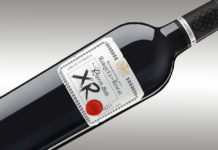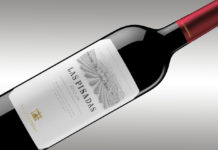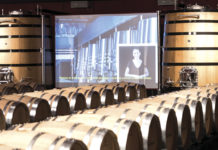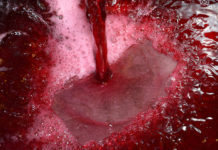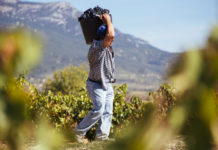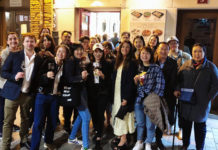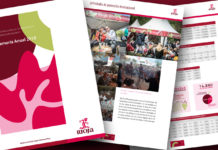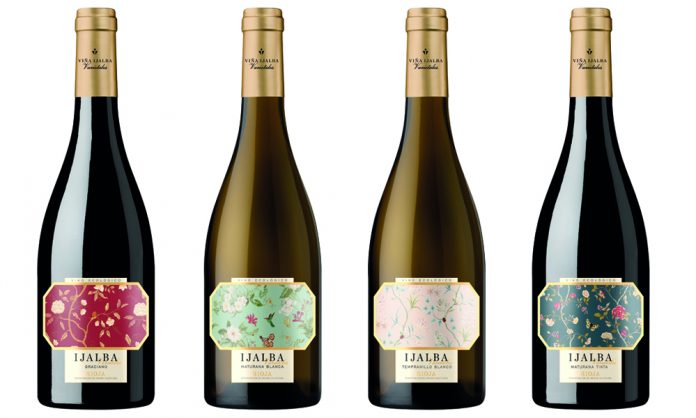
Viña Ijalba has always been known for its surprisingly original packaging and today, it continues its ‘(r)evolution’ with a new image for its wines, demonstrating that innovation is an inseparable part of its working philosophy; its business DNA. “We believe that the time for change has arrived and that we need to reflect the maturity acquired by our winery; a renovation that represents a turning point for the winery and for the focus and prominence that Viña Ijalba wishes to acquire from now on,” says Cristina Gutiérrez, third generation of the family at the helm of Viña Ijalba. She was accompanied at the presentation by the winery’s young winemaker, Pedro Salguero, and the renowned wine critic José Peñín, who praised the audacity of this well-known Rioja family winery, known for breaking moulds in a wine region that is so respectful with tradition.
The winery pioneered organic viticulture, environmental protection and research into native grape varieties, and José Peñín highlighted the importance of Viña Ijalba’s role in the development of these lines of work, which are now receiving major attention, both in La Rioja and in the whole of Spanish viticulture, as they are considered of key importance in product valorisation and differentiation. Peñín places great value on Viña Ijalba’s willingness to take on the risk of being a pioneer and cited its ground-breaking work and the launch of the first Graciano varietal in 1995 and its focus on the vineyard rather than the winery when making wine, something quite rare twenty years ago. In short, for this prescriber, Viña Ijalba has contributed significantly to encourage today’s Rioja wine scene and represents ‘a third way’ between the classic wineries and the so-called ‘modern’ winemakers.
Differentiation strategy
From its first launch on the market, Viña Ijalba used novel packaging for its wines, both in the labels and in bottles. “Now we present our range of aged wines with a more serene, classic design; an elegant style that maintains the essence, colour and geometric character of the brand,” said Cristina Gutiérrez, “while we have opted for a natural, floral look for the new collection of four single varietal wines, made with Tempranillo Blanco, Maturana Blanca, Maturana Tinta and Graciano, to be marketed from April.” The new labels aim to offer a window into “a natural, organic world; like a garden that evokes the personality of the vineyard and the elements that comprise it.”
Fruit of the research project for the recovery of minority vine varieties carried out in partnership with La Rioja University, the DOCa Rioja Control Board and La Rioja Agricultural R&D Centre, Viña Ijalba was the first Rioja winery to market these varietal wines. In 1995, Viña Ijalba presented the first Graciano varietal in Rioja. In 2001, after some experimental vinifications, the first Maturana Blanca wine was marketed, this being one of the recovered varieties. In 2002, its Maturana Tinta was presented and, in 2006, the Tempranillo Blanco (arising from a natural genetic mutation of red Tempranillo).
The first organic wines in La Rioja
The innovative spirit of Viña Ijalba has not been limited to its image, but also to the personality of its wines, as the winemaker, Pedro Salguero, points out: “We have been innovative in the way we make our wines and ventured to create single varietals in Rioja, like the first 100% Graciano, but it is truly a luxury to be able to work with such a wide range of varieties. We are always very respectful with the fruit and let each variety express its full potential.” Thanks to the work carried out in the field to convert the 90 hectares of estate-owned vineyards to organic viticulture, the 98 vintage marked the first Rioja wine made under the control of the La Rioja Organic Agriculture Control Body. This was followed by the rest of vinifications, as well as the use of wild yeast strains, which contributes to preserve biodiversity and accentuates the uniqueness of the wines.
The presentation concluded with a tasting in which, in addition to the 2017 Maturana Blanca varietal, a new wine was presented en primeur: Ijalba Cuvée (70% Tempranillo, 20% Graciano and 10% Maturana Tinta) from the 2016 vintage, with 10 months’ ageing in French oak barrels. This is a high-expression wine of great aromatic intensity that proves very well-balanced in the mouth.









